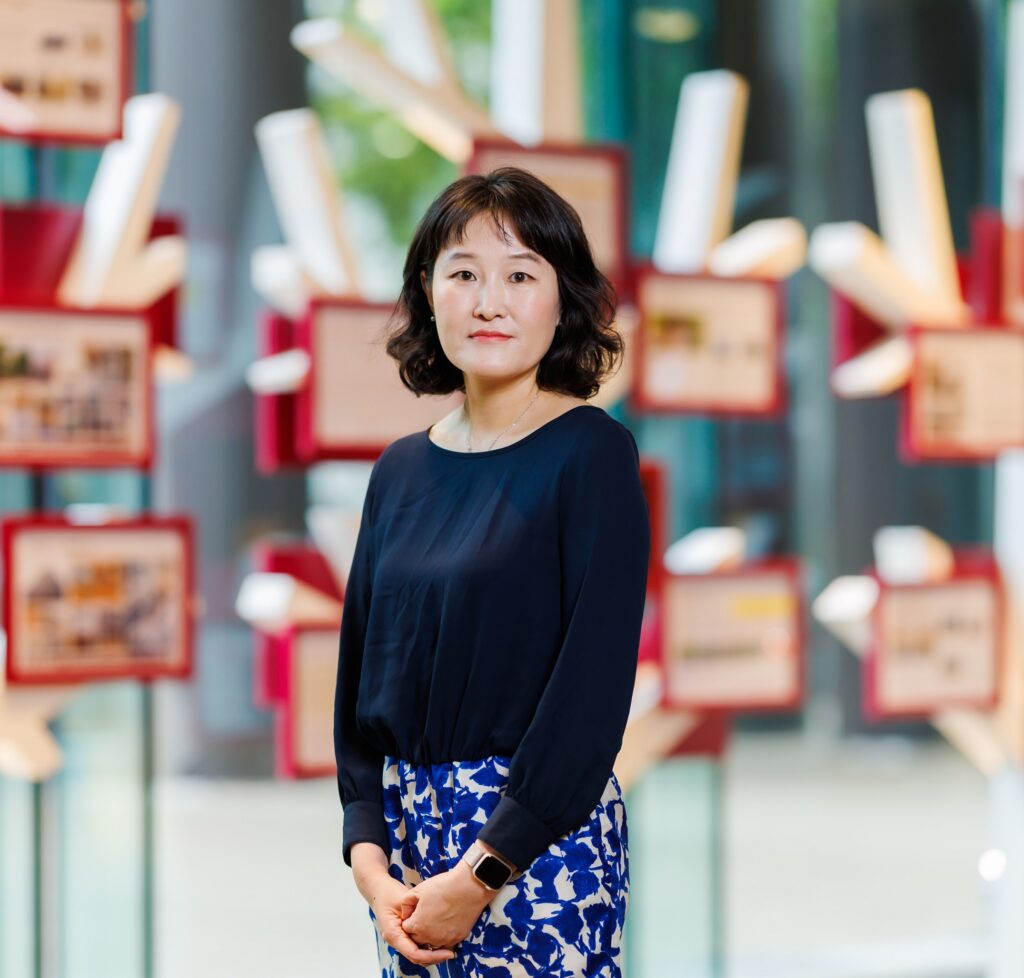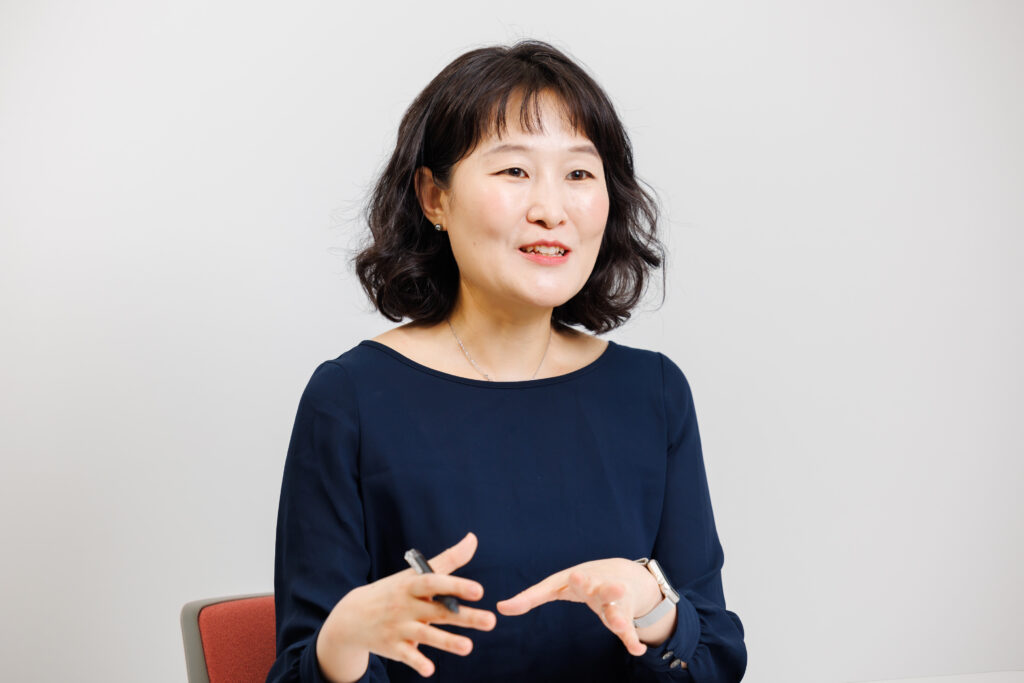
Associate Professor Wonkyung Rhee of the Center for Global Education and Discovery has conducted a large amount of research on East Asian nationalism in cyberspace. With her eyes set firmly on both the bright and dark sides of technology, she explores possibilities for new kinds of diplomacy that utilize digital technology.
The evolution of digital technology has a large impact on the relationships between nations. My research explores how nationalism has proliferated across cyberspace in Asia, with a focus on Japan, China, and South Korea.
When my research began in the 2000s, the cyber space landscape was far from favorable. Especially within internet forums in East Asia, there was a growing intensification of verbal conflicts among anonymous users, often revolving around historical problems and territorial issues. These disputes sometimes escalated into cyber-attacks targeting government-related websites.
Why did matters escalate to this extent? My analysis of online forums and bulletin board system (BBS) discussions indicates that although users with extremist views and opinions constitute a minority, the provocative nature of their statements incites strong reactions on both sides, leading to a snowball effect.
Additionally, through comparison to other regions like Europe, a trend has become apparent for right-wing communities to easily form online in states that have experienced an authoritarian government historically.
Generative AI and other new technologies can foster discrimination and prejudice

Fortunately, there has been a substantial decrease in cyber-attacks driven by nationalism in the 2010s. Several factors contribute to this decline, such as the shift from internet forums to social media for online communication and the worldwide popularity of web content like K-pop and Japanese animation through these platforms.
My research findings indicate that technological advancements and associated policies have exerted a considerable influence. There have been advancements in legislation regarding cyber-attacks, as well as the development of skills for tracking attackers. The escalating risk of legal actions against even novice hackers has emerged as a deterrent force.
Conversely, the general level of internet literacy has remained stagnant. My current concern lies with emerging new technologies that present legal loopholes. Even generative AI, which is based on large-scale language models and has been garnering attention recently, offers no guarantee against misuse that may promote discrimination and prejudice.
The risk is greater for languages with fewer speakers, like Japanese and Korean, where there is a higher chance of value bias compared to a global language like English.
Digital technology undeniably offers a bright side as well. In recent years, public diplomacy has gained significant global attention. This approach, where one country engages directly with the citizens of another to inform and influence public opinion, heavily relies on cultural exchange and increased interactions with the public. Consequently, it necessitates the use of social media and online platforms to advance its objectives.
The questions remain: what discourse will it generate and what kind of impact will it bring? This is a topic that warrants ongoing research and analysis.
I am also closely observing the efforts of countries, including Australia, to capture the perspectives of young people through social media and incorporate their ideas into policymaking. To visualize the opinions of the youth through social media, and reflect their ideas in policy. I am particularly intrigued by this approach because it holds the potential for application in diplomatic strategy as well.
This could be effective in East Asia, which has a robust amount of young internet users, yet also contends with the challenges posed by an aging society. I perceive my role as a researcher as watching over the advancement of technology while exploring its new potential for digital diplomacy.
The book I recommend
“Tower”
by Bae Myung-hoon, Japanese translation by Mariko Saito, Kawade Shobo Shinsha

This is a science fiction novel set in Beanstalk Tower, a massive tower nation of 647 floors. It contains sharp critiques such as sarcasm towards social stratification and provides many things to consider when thinking about the relationship between technology and the state.
-
Wonkyung Rhee
- Associate Professor
Center for Global Education and Discovery
- Associate Professor
-
Graduated from the Department of English Language and Literature, Korea University, and received her M.A. in International Relations at Seoul National University and her Ph.D. at the Waseda University Graduate School of Global Information and Telecommunication Studies. Wonkyung occupied multiple roles within international organizations and the Embassy of the Republic of Korea in Japan. She commenced her journey at Sophia University as a postdoctoral fellow in 2016, served as an assistant professor, and was appointed to her current position in 2023.
- Center for Global Education and Discovery
Interviewed: May 2023